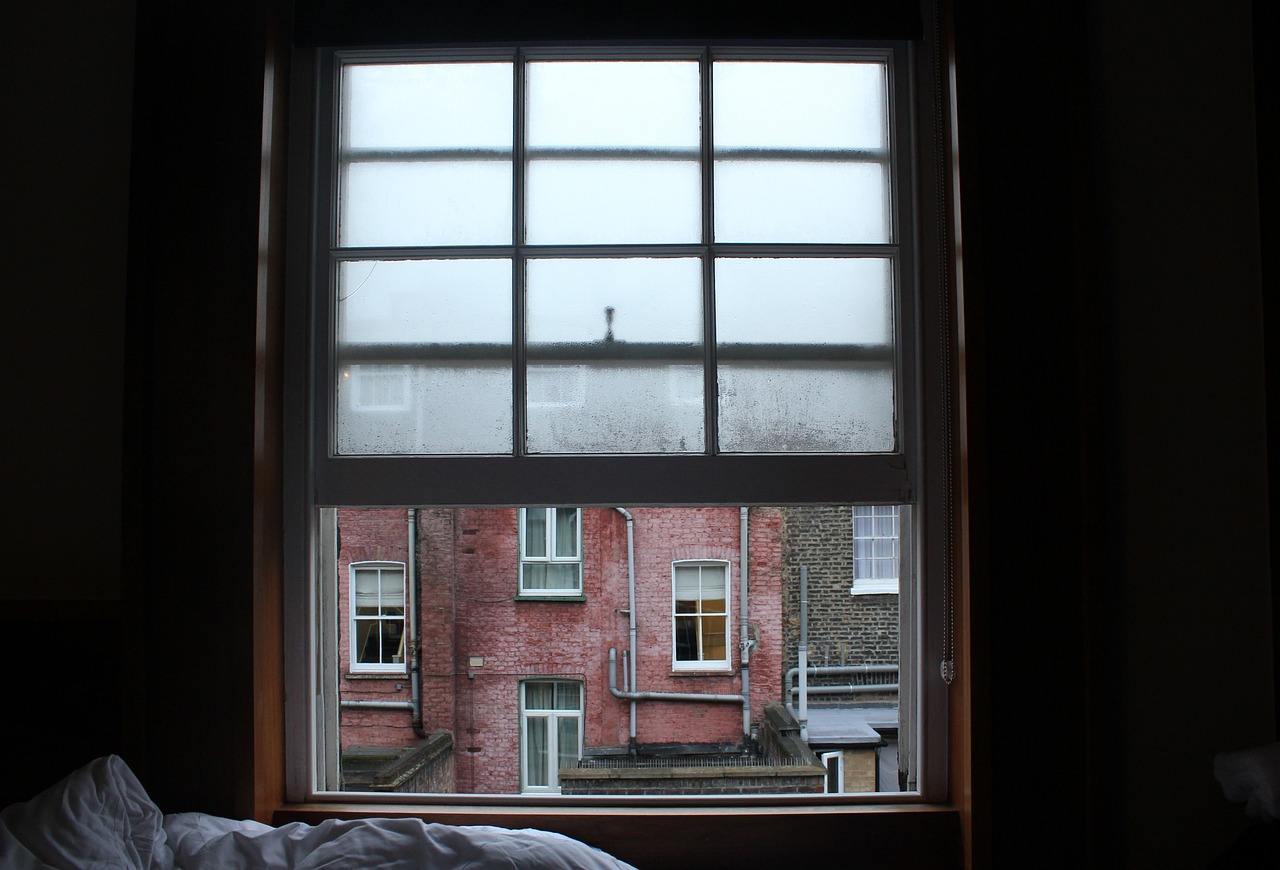How do I stop condensation on my windows in the morning?
As the temperature drops, you may observe condensation forming on your window panes, but don’t worry. It’s a positive sign that your new windows are functioning correctly. However, excessive moisture on the windows can lead to the growth of black mould on walls and frames, which is a severe damp issue.
To address condensation, it’s essential to comprehend the three types: exterior, interior, and between the panes of glass. Exterior condensation is beneficial since it demonstrates that your windows are effectively reducing heat transfer.
In contrast, interior condensation is caused by the humidity levels inside your house, creating an environment conducive to the development of mould and mildew.
Although exterior condensation is unattractive, it still indicates that the windows are performing their job. If you observe condensation between the window panes, the window seals are not functioning correctly, and you’ll need to replace them.

To prevent excess moisture in your home and manage condensation, there are some straightforward actions you can take.
Lowering your thermostat, ventilating your home, air-drying clothes outside, and using extractor fans are all effective measures.
If you have severe condensation problems, investing in a dehumidifier would be a wise choice. Even if you have double or triple glazed windows, you may still experience condensation, but it indicates that your windows are functioning correctly.
The most efficient approach to avoiding condensation is through triple glazing, which minimizes temperature differences and prevents water droplet formation. Overall, comprehending the reasons for condensation and taking appropriate steps to manage it can safeguard your home and avert major issues.
Is it normal to have condensation on windows in the morning?
Yes, it’s normal to see condensation on the outside of your windows during summer mornings. This occurrence indicates that the air temperature outside is humid and warming up quickly, while the glass remains cold.
However, this is nothing to be concerned about since it will disappear as soon as the sun warms up the glass. So, if you notice such condensation, there is no need to worry as it is a typical phenomenon.
Should I wipe condensation from windows?
Yes, it is highly recommended to remove excess window condensation as soon as possible to prevent damage to your home and potential health problems. Excess water can cause window seals to warp and loosen, while the dampness can lead to the growth of mould, which is hazardous for people with pre-existing respiratory problems.
To remove the condensation, use an absorbent paper towel or microfibre cloth to gently scoop and wipe the water off the surface of your windows. Then, dry the pane thoroughly with a fresh towel or squeegee, and open the windows to prevent the condensation from quickly returning.

If the condensation persists, it might be necessary to get your windows checked for hidden damage. Additionally, serious accumulations of mould around a window might require a specialist cleaning agent containing bleach, which should be used with caution due to its hazardous nature.
However, most moulds can be removed and killed with a steam cleaner. Keep condensation in check to prevent the worst of the related mould from appearing.
Should I be worried about condensation on windows?
Condensation on windows is typically not a cause for alarm unless it is excessive or trapped between the panes. If left unattended, it can harm your home and pose health risks due to the growth of dangerous mold.
To prevent this, it is advisable to wipe excess condensation as soon as possible using an absorbent towel or microfiber cloth.
Dry the pane thoroughly with a fresh towel or squeegee to prevent the accumulation of water. Opening windows can also help prevent condensation from forming.
If mold growth is severe, consider using a specialist cleaning agent with bleach. A steam cleaner can also remove most mold growth. Keep an eye on condensation to ensure the worst of mold does not appear.
Is condensation on windows bad for your health?
Condensation on windows can lead to mold growth, which can be harmful to both your home and health. Neglecting this issue can cause damage to your property and create an unpleasant indoor atmosphere.
Additionally, mold growth resulting from prolonged exposure to indoor dampness can cause respiratory problems, including asthma, bronchitis, pneumonia, and reduced lung function.

People with allergies and asthma are particularly susceptible to severe symptoms when exposed to mold.
Therefore, it’s crucial to monitor and promptly address condensation to prevent mold growth. Wiping off excess condensation with an absorbent towel or microfiber cloth, thoroughly drying the window, and promoting air circulation by opening windows can help.
Is window condensation normal in winter?
Window condensation is a regular occurrence caused by high humidity, which is more prevalent in summer but can still happen in winter.
Will window condensation go away?
When the interior air lacks moisture or the glass surface gets heated, condensation tends to disappear through evaporation. Therefore, the presence of dry indoor air or a warm glass surface can cause the condensation to dissipate.
So, to answer the question, yes, window condensation can go away under the right conditions.
What temperature should I keep my house to prevent condensation?
To prevent condensation from forming in your home during the colder months, it is recommended to maintain a minimum temperature of 21 degrees in the living room and 18 degrees in the bedrooms.
You don’t have to keep your home at these temperatures all day, but it’s important to raise the temperature to these levels at least once a day to reduce condensation.







